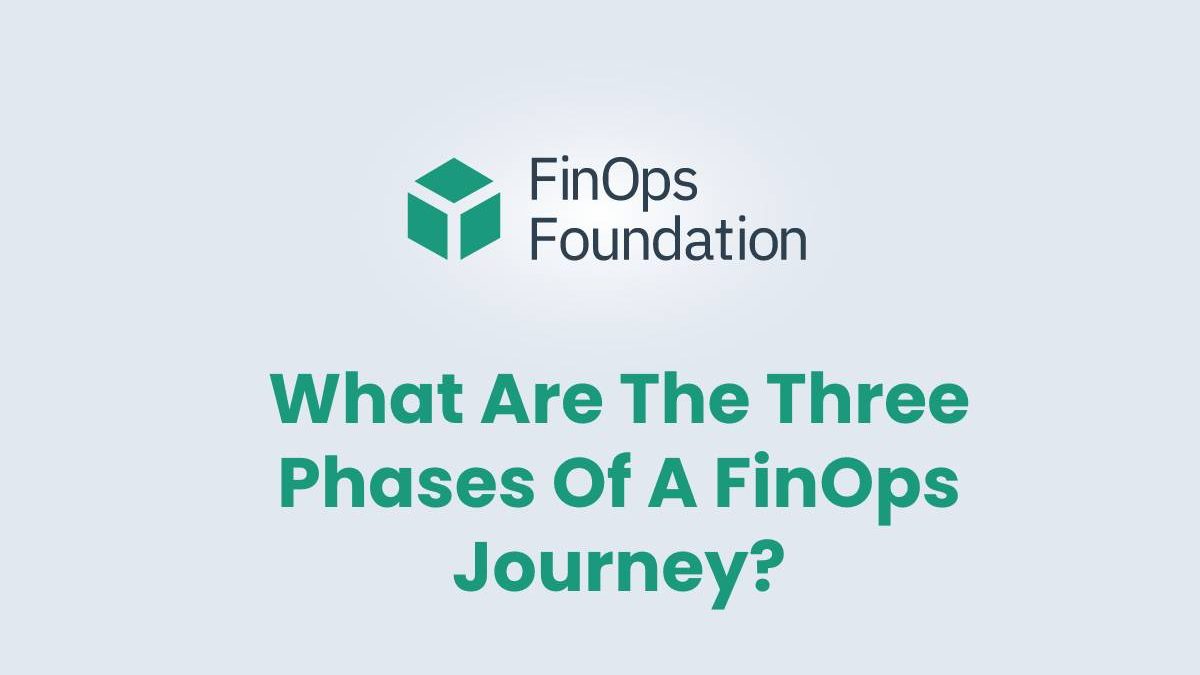Three Phases Of A FinOps Journey
FinOps is an approach that aims at financial Cloud management. It works towards financial and operational control over Cloud spending. It is beneficial for any company and may provide a holistic approach towards financial management.
Table of Contents
The Three Main Phases Of FinOps Journey
FinOps aims at improving Cloud operational efficiency, which otherwise will produce tremendous operational costs. Also, it helps enhance the agility of resources in use. To understand the system of FinOps in-depth, you need to dive into its three phases. They are namely- The Inform Phase, The Optimize Phase, and The Operate Phase.
#1. The Inform Phase
This is the initial phase of the FinOps journey that helps a team learn the lesson of what one can measure and control. This phase helps educate everyone about the existing scenario of the system. So, in this phase, you are likely to focus on five main goals.
1. Visibility
Every Cloud activity and its costs are visible and well-documented. As such, the visibility on the expenses improves amidst different teams.
2. Benchmarking
The data on both budget and forecasts are collected from each iteration. With such insights, the identification of benchmarks and success metrics for every team becomes a seamless process.
3. Budgeting
The finance and the Cloud team are bogged in making sure that they generate enough ROI without exceeding the budget. This is where budgeting comes to life.
4. Forecasting
Forecasting the spends to create an accurate budget is a significant step. At this point, CloudKeeper’s CK LensTM can be useful to track the expenses on a resource level.
5. Allocating
Cloud spends require precise allocation. Such a thing depends on several factors like tags, accounts, and business mappings. So, upon practicing it correctly, the allocation process becomes less complicated and convenient.
#2. The Optimize Phase
The second phase empowers cloud teams to take up the correct optimization strategies to achieve set goals. Reserved Instances, resource right-sizing, and automating resources can be of great help in this phase.
1. Real-time Decision-making
Companies can determine whether the resources are under or over-provisioned. This practice allows them to make fast decisions that ensure all-inclusive process optimization.
2. Reducing Waste To Improve The System
Companies can determine the Cloud resources required and use them to eliminate the resources that are not needed. By using reserved instances, the company may help reduce further costs. CK LensTM can be beneficial in offering a view of the AWS spends along with resource-level cost visibility. So, you can keep further track of that.
The transformation from on-demand capacity to reserved instances is also available in this process. The phase also helps promote better workflows and unleash deep operational insights. CK LensTM not only helps extract a comprehensive billing summary but also offers consistent cost breakups. Thus, one can enhance the Optimize phase and make the most of it in their business.
#3. The Operate Phase
This phase should be used in our daily operations to achieve goals. This is a technologically intensive process. The IT and business departments should curate a FinOps framework to promote speed, efficiency, and cost-effectiveness. It may also help analyze the team practices to meet business objectives. The application of CK LensTM can come in handy here to manage and track your Cloud spends in no time.
The Bottom Line
Generally, most companies think of FinOps as a highly complex system. It can, however, be an efficient method to improve Cloud operations in no time. So, why not try it? Please make the most of FinOps while considering the three main phases involved. It is sure to change the game for your business instantly.
Related posts
Sidebar
Recent Posts
An Inside Look Of Paraulogic
Introduction Welcome to the exciting world of Paraulogic! Are you ready to dive into a linguistic adventure and put your…
Empowering Artists with Cryptocurrency: A Guide to Selling Art Using NFTs
In the ever-evolving landscape of the art world, artists are constantly seeking innovative ways to showcase and monetize their creations….



